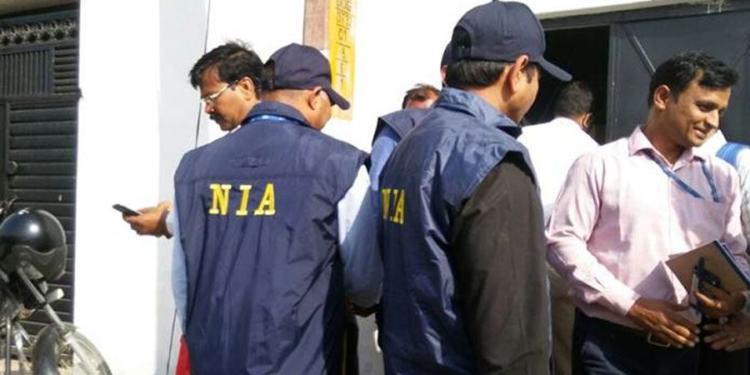In another push towards India’s ‘zero-tolerance’ policy against terrorism, the Indian parliament is set to sharpen the teeth of the National Investigation Agency (NIA) , India’s Central Counter Terrorism Law Enforcement Agency. The new legislation further seeks to give NIA the powers to probe terror attacks targeting Indians and Indian interests on foreign soil. Introducing The National Investigation Agency (Amendment) Bill in Parliament, Union Minister G Kishan Reddy said the legislation will also allow the NIA probe cyber crimes and cases of human trafficking. The new legislation will empower the agency to conduct investigation in any part of the world if any terror attack targeting Indians or Indian interests takes place.
Coming into existence through the enactment of the National Investigation Agency Act, 2008 by the Parliament of India, the National Investigation Agency (NIA) acts as India’s Central Counter-Terrorism Law Enforcement Agency. Created in the aftermath of the ghastly 2008 Mumbai terror attacks in which more than 160 individuals had lost their lives, the NIA has been operating at its optimum with a conviction rate of 95% as it managed to convict 167 accused in 185 cases registered by it since its inception in 2009.
Over the past few years, NIA has been successful in busting out several terrorist modules operating covertly on Indian soil. One of the most striking examples of NIA’s efforts is surely the crackdown on ISIS modules operating in Tamil Nadu and Kerala. Recent raids by the National Investigative Agency (NIA) in Coimbatore also point towards NIAs efforts against the growing footprint of ISIS in India mainly Kerala and Tamil Nadu. These raids by the NIA were conducted over suspected links between an Islamic State module and the Easter Bombings in Sri Lanka. According to a press release by the NIA these raids were conducted “based on information received that the accused persons and their associates were propagating the ideology of proscribed terrorist organization ISIS/ Daish on social media with the intention of recruiting vulnerable youth into the ISIS/ Daish for carrying out terrorist attacks in South India especially in Kerala and Tamil Nadu.”
During the raids 14 mobile phones, 29 SIM cards, 10 pen drives, 3 laptops, 6 memory cards, 4 hard disc drives, 1 internet dongle and 13 CDs/ DVDs besides one dagger, one electric baton, 300 air-gun pellets and a large no. of incriminating documents and few PFI/ SDPI pamphlets have been seized from the houses and workplaces of accused persons. NIA has also been active against Terrorism in Kashmir. In 2018, NIA had filed a chargesheet against 12 people including Lashkar-e-Taiba terror group chief Hafiz Saeed and Hizbul Mujahideen chief Syed Salahuddin, after nearly eight months of investigations spanning six states in India during which over 300 witnesses were examined, 950 “incriminating documents” and 600 electronic devices were seized.
Great job by NIA:
NIA arrested Azarudeen in Tamil Nadu, a Facebook friend of Sri Lankan bomber.
NIA also identified 6 Coimbatore youths as part of an ISIS module.
Azarudeen confessed that he was planning to carry out big attacks in Tamil Nadu and Kerala.
— Anshul Saxena (@AskAnshul) June 13, 2019
Not surprisingly in opposition to the Bill, Congress MP Shashi Tharoor has taken a critical stand on the amendment and pointed out that it will further increase the backlog on the judiciary as it will lead to more cases being filed by the NIA. Congress MP alleged that the bill was “not based on logic” and was “piecemeal” legislation.
While India looks forward towards strengthening its national security profile in face of growing foreign hostility and increasing penetration of terror originations like ISIS, this amendment will surely add a link to the long chain of efforts by the Indian Government to combat terrorism. The opposition trying to subvert the efforts towards strengthening of anti-terror bill is not only bizarre but also raises sharp questions over their commitment towards India’s national security interests.




























